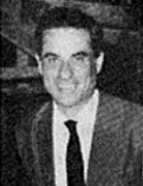

One of the investigations he undertook was the express indication of figures in Arabic numbers and their comparison with the persistence of Luso-Roman numerals. An innovation that was gradually accepted and which he concluded revealed ‘a new culture’ that was ‘no longer traditional’. That does not stop there. It had to be interpreted, given that it occurred ‘in the cultural milieu of professional groups directly linked to the blossoming of a social class. It then becomes generalised to all occupational groups, in all social classes ’ ( Portugal e as origens … [Portugal and the origins] , p. 72).
He also looks at the notion of experience in Portugal, scrutinising texts from the 11 th century (1055) to the end of the 16 th century (1580). He searches through writings of all kinds: literary, chronicles, didactic texts from the Court, archive documents, texts linked to travelling, especially sea voyages, such as ‘descriptions of lands, logbooks, itineraries, nautical guides, and even scientific texts (...)’. To find in the 16 th century and especially in Duarte Pacheco Pereira that ‘experience, empirical experience, the experience of common sense, sensitive experience, is the new criterion of truth, to the detriment of the authorities … ’ ( Portugal e as origens …… [Portugal and the origins] , p. 112). In search of the various meanings and semantic variations that can be recorded. JBC is a scholar who has integrated the most problematic aspects of his training with the great French masters who find their expression in the Annales [Annals] ( Économies-Sociétés-Civilisations ) [Economies-Societies-Civilizations] . History as a social science, always ( Da História-Crónica … [of Chronical History] , 1972).
He was a scholar who work ed as if he had to see and review everything in order to be well versed in this enquiry about an incipient culture that he call ed ‘experientialist’. One only has to look at the care and detail with which he analyse d the two manuscripts that are presumed to be the oldest of the Esmeraldo – the one kept in the Évora Library (which he conclude d to be the best and closest to the original) and the one in the National Library of Portugal (which, incidentally, is a copy of the Évora manuscript with some distortions). An immense amount of erudition has gone into achieving the most correct version possible of this fundamental text for understanding modern Portuguese thought. Erudition of the highest calibre, of which he gave the best of lessons in Duarte Pacheco Pereira ’ s Esmeraldo de situ orbis ( Édition critique et commentée ). JBC was not satisfied simply with a rigorous survey of the texts. For this reason, he then set out to explain the emergence of a modern and modernising vision and worldview in Renaissance Portugal. He always sought to present what ha d been written on the subject, rebutting opinions, sometimes even unsubstantiated ones that would not warrant much attention. But JBC had no desire to leave anything unclear or misunderstood. Any subject that he touched on was duly decided with his erudite analysis.
This work is financed by national funds through FCT - Foundation for Science and Technology, I.P, in the scope of the projects UIDB/04311/2020 and UIDP/04311/2020.
